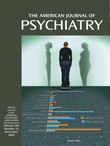A Compulsion for Antiquity: Freud and the Ancient World
This serious book on an important matter forms part of the admirable Cornell Studies in the History of Psychiatry series, edited by Sander L. Gilman and George J. Makari. Armstrong is a classicist, and he has succeeded in writing the most thorough investigation yet on Freud’s relation to the ancient world. Of course, others have noted bits and pieces connected to the problem of Freud’s involvement with the ancient world, but Armstrong is in a position to execute a thorough and comprehensive investigation of many sides to this important question within the history of ideas.
Today’s clinicians will probably be inclined to note aspects of the story that Armstrong skips. For example, the tomb-like atmosphere of Freud’s consulting room was bound to have a suggestive impact on his patients. Certainly the presence of Freud’s archeological antiquities was unusual enough to prevent his office from becoming anything like a neutral laboratory setting. The atmospherics of Freud’s collection of ancient objects, as well as the books, helped make Freud’s presence a realistic one. Armstrong also does not raise the issue of how psychological clients could collaborate with Freud in using the past as a defense against current problems, pointed out by Carl Jung and others.
Where Armstrong is at his strongest is in dealing with just about every possible classical reference in Freud’s writings. The extensiveness of Freud’s appeal to the ancient world has to be considered remarkable, and the substance of Armstrong’s book securely complements those inclined to see Freud primarily in a biological context. Armstrong is correct in seeing how this fascination of Freud’s with pagan life can be related to both his critique of Christianity and his complicated relation to Judaism; the topic of Freud and religion is not likely to be exhausted in the near future. Armstrong is also especially interesting in understanding Freud within the context of late-19th-century history-writing.
No scholar can be expected now to rely on the entire corpus of Freud studies, but as far as I can tell Armstrong has done a remarkably conscientious job of covering his topic. Intellectual historians will be grateful for this path-breaking humanistic exploration of a subject that has been unduly neglected until now.



